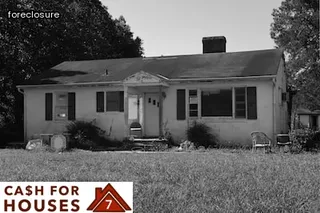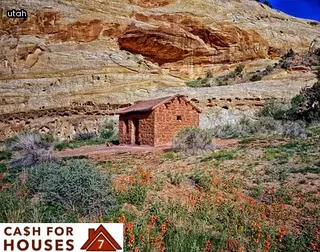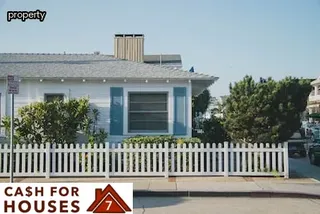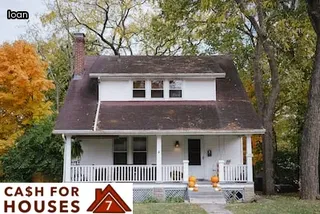The foreclosure process in Utah follows a specific timeline and it’s important to understand what happens throughout the process if you are facing foreclosure. The first step is a Notice of Default, which is sent to the homeowner by the lender when payments have not been made on time.
This document outlines how much money the homeowner owes, including any delinquent payments, and provides them with an opportunity to cure the default by paying off their debt. If this is not done within 90 days, then the lender can proceed with a foreclosure sale.
After the Notice of Default has been issued, a Notice of Trustee Sale must be filed and published in a newspaper for three consecutive weeks prior to the auction date. On that day, local bidders will compete to purchase the property during an open public auction.
The property will be awarded to the highest bidder at that time and they will receive title of ownership once all paperwork is completed and signed. It’s important to remember that even after your home has been sold through foreclosure proceedings, you still owe any remaining balance on your loan unless it is discharged in bankruptcy or through other legal action.
Understanding the timeline of Utah’s foreclosure process can help those who are facing foreclosure make informed decisions about how to proceed with their situation.

Homeowners in Utah facing foreclosure have certain steps and rights to protect them throughout the preforeclosure process. Homeowners may be able to work with their lender to modify their loan or may benefit from a forbearance agreement, allowing them to suspend or reduce payments for a set period of time.
Additionally, homeowners have the right to receive proper notification of foreclosure proceedings and also the right to redeem the mortgage loan by paying off any amounts owed before the sale of the property. In some cases, homeowners may also have the ability to negotiate with their lender for a short sale or deed-in-lieu of foreclosure agreement, which can help avoid a lengthy foreclosure process.
It is important for homeowners in Utah to understand their rights and options when it comes to preforeclosure proceedings so they can make an informed decision about how to best handle their situation.
When going through the Utah foreclosure process, it is important to understand and adhere to both state and federal laws. In Utah, the foreclosure process begins when a homeowner fails to make payments on their mortgage loan.
The lender must then file a complaint in court requesting that the house be sold to recover their financial losses. On the federal level, the Federal Home Loan Mortgage Corporation (FHLMC) provides guidelines for lenders in regards to foreclosure proceedings.
These guidelines include requiring lenders to provide homeowners with timely notice of default and ensuring that all parties involved are treated fairly throughout the process. Furthermore, foreclosures are prohibited if they are based on discriminatory practices or if they fail to comply with state or federal laws.
It is essential for homeowners going through foreclosure in Utah to comply with both state and federal laws in order to protect their rights and interests throughout the process.

Navigating a foreclosure in Utah can be difficult, but understanding the process and the laws surrounding it can help make it easier. Learning the most common foreclosure process in Utah begins with understanding what a foreclosure is.
A foreclosure is when lenders take possession of a home when the borrower fails to make their payments. The lender will then attempt to sell the home in order to recoup some of their losses from the loan.
The Utah Foreclosure Process typically begins with a Notice of Default being sent to the homeowner, which gives them time to remedy the situation or come up with an alternative solution. If this does not happen, then a Notice of Sale is sent out which sets forth details about how and when the sale of the house will take place.
After this has been established, there will be a public auction where potential buyers can bid on the property before it is sold off to the highest bidder. It's important for potential buyers to understand that they may be subject to other fees or costs associated with buying foreclosed properties as well as any back taxes due on properties purchased through foreclosure proceedings.
Knowing these details ahead of time can help ensure that you are prepared and informed throughout every step of your journey when considering purchasing foreclosed property in Utah.
The Utah foreclosure process requires homeowners to vacate their property within 90 days of the sale. If a homeowner fails to do so, they may be subject to criminal and civil penalties as defined by state law.
Homeowners who are facing foreclosure in Utah should familiarize themselves with the applicable laws pertaining to this matter. For instance, they should understand that they will not only have limited time to move out of their home, but also that they must remain current on all payments during the 90-day period after the sale of their property.
Furthermore, homeowners should be aware that if they fail to comply with the timeline and laws set forth by Utah, they could face eviction by their lender or court order. It is important for homeowners in Utah to take steps to ensure a smooth transition and proper closure when it comes to a foreclosure on their property.

When facing foreclosure in Utah, it is important to understand the foreclosure process and laws in order to take advantage of any strategies that may help avoid the loss of your home. One option to consider is a deed-in-lieu of foreclosure; this allows homeowners to transfer possession of their property directly to their lender as an alternative to a foreclosure sale.
Homeowners should also be aware of forbearance agreements with lenders, which allow for reduced or suspended mortgage payments for a period of time, as well as loan modifications, which can help adjust payment amounts and interest rates. Additionally, working with a third party such as a credit counselor or housing counseling agency may help prevent foreclosure by helping negotiate with lenders on behalf of the homeowner.
In some cases, bankruptcy might also be an option if other strategies are unsuccessful. It is essential for homeowners to take action quickly if they are facing foreclosure so that they can discuss options with their lender and determine the best strategy for avoiding foreclosure in Utah.
When facing foreclosure in Utah, it is important to understand the applicable state laws on deficiency judgments. A deficiency judgment is when a borrower still owes money after a foreclosure sale.
In Utah, lenders must sue for a deficiency judgment within one year of the foreclosure sale and must file their lawsuit in the same county where the property was located. To obtain a deficiency judgment, lenders must prove that the fair market value of the home is less than what the borrower owes on their loan.
If unsuccessful, lenders cannot pursue further action and will not be able to collect any additional debt from borrowers. However, if successful, lenders can seek money from borrowers up to the amount they are owed on their mortgage or other costs associated with the foreclosure process.
The court will determine how much a borrower has to pay back and may also place an injunction against them if needed. Understanding these laws can help individuals facing foreclosure understand their rights and take necessary steps to protect their assets.

Navigating the Utah foreclosure process and laws can be difficult, but professional help is available to ensure that you understand the nuances of each step. Mortgage loans and foreclosures in Utah are unique, so having an experienced professional on your side who understands the local laws and regulations is essential for a successful outcome.
They can provide advice on how to best approach mortgage loan and foreclosure issues in Utah, from understanding the different types of loans available to helping you complete paperwork correctly and efficiently. In addition, they can provide assistance with negotiating terms with lenders or investors, as well as guidance on what actions may be taken if a foreclosure occurs.
With their expertise, you can rest assured that every aspect of your mortgage loan or foreclosure situation will be handled professionally in order to secure the best possible outcome for your financial future.
Missing a mortgage payment can have serious consequences, so it is important to understand the foreclosure process and laws in Utah. If you are unable to make your mortgage payments on time, your lender may begin the foreclosure process by filing a Notice of Default with the county recorder's office.
This will provide notice to you that the lender is going to take action if you do not pay the amount due. Once this happens, it is important for homeowners to be aware of their rights and options under Utah law.
A homeowner might have the right to reinstate their loan by paying all past due payments and any additional fees or charges imposed by the lender. If successful, this will stop the foreclosure process and allow them to remain in their home.
However, if reinstatement does not occur, then Utah law allows for a non-judicial sale of the property which could result in eviction. If this occurs, it is important for homeowners to know there are resources available such as legal aid organizations that can help them navigate through this difficult situation.

A breach letter is a formal notification sent to mortgage borrowers when they are in default of their payments. It explains that the borrower is behind on their loan and outlines the amount needed to cure the default.
The letter also provides information about the foreclosure process, including how long it will take for the lender to foreclose and what steps can be taken to stop it. Additionally, it informs borrowers of any applicable laws in Utah regarding foreclosure and how those laws could impact them.
Knowing what a breach letter is and how it affects you is essential for navigating through the complicated Utah foreclosure process.
In Utah, the foreclosure process starts when a borrower has missed three consecutive payments. The lender then sends the borrower a "Notice of Default" informing them that the loan is in default and that legal action will be taken if the payments are not made.
As part of this notice, borrowers are required to take certain steps such as providing proof of income or making arrangements for repayment. In some cases, the lender may offer a loan modification which would allow borrowers to remain in their homes while still making regular payments.
If this option is declined by the borrower, then they will enter into pre-foreclosure where they must either sell their home or make arrangements with their lender to avoid foreclosure. If these efforts are unsuccessful, then the lender can proceed with foreclosure proceedings through either judicial or non-judicial methods.

Utah is one of the states that have implemented specific laws to address foreclosures. Understanding these laws and their implications is critical for any individual or organization involved in foreclosure proceedings.
Utah’s foreclosure process is governed by state law and requires lenders to follow certain procedures before they can take back a property through foreclosure. Foreclosure proceedings start with the filing of a foreclosure complaint with the court, followed by the publication of notice to all affected parties and creditors.
If a borrower does not respond, then the court may enter an order of sale, allowing the lender to sell the property at auction. In most cases, though, borrowers can cure their default by paying off all delinquent payments and other fees before the sale date.
To ensure fairness in the process, Utah prohibits lenders from using deceptive practices such as “dual tracking” - when a lender pursues both loan modification and foreclosure options at once. Additionally, lenders must give borrowers reasonable time to consider loan modifications or other alternatives before proceeding with a foreclosure action.
In the state of Utah, homeowners have a right to reinstate their mortgage prior to a foreclosure sale. This means that homeowners can pay all past due amounts, including fees and interest, in order to retain ownership of the home and avoid foreclosure.
Homeowners who are unable to make the payments must file a Notice of Default with their local county clerk's office before they can exercise their right to reinstate. The lender must then provide written notice that outlines the terms of reinstatement and gives the homeowner at least 30 days to make the payment.
If the borrower does not make the payment within this time frame, then they may be subject to foreclosure proceedings. It is important for homeowners facing foreclosure in Utah to understand their rights so that they can take advantage of any opportunities available for reinstatement or other options such as loan modification or refinancing.

In Utah, a foreclosure sale is the final step in the foreclosure process. After a foreclosure sale, there is no redemption period for the former homeowner to reclaim the property.
This means that once the foreclosure sale is complete and all requirements are met, the new owner takes possession of the property and can begin to make changes to it without any further involvement from or recourse for the previous homeowner. The lack of a redemption period means that homeowners must take extra caution when facing foreclosure in Utah to ensure that they understand their rights and responsibilities under state law.
It is important to know what steps must be taken prior to a foreclosure sale and how that affects your ability to regain ownership of your home should you choose to do so after the auction. Additionally, understanding how different types of loans are treated within Utah's legal system can help homeowners make better informed decisions when considering their options during foreclosure proceedings.
Taking these precautions can help ensure that homeowners have access to all available options while navigating this difficult situation.
Foreclosure is a difficult situation that can have serious financial and emotional repercussions. In Utah, the foreclosure process is complex and governed by various state laws. To better understand the Utah foreclosure process, here is a comprehensive guide to the laws and steps involved.
The first step in the Utah foreclosure process is for the lender to serve a notice of default to the borrower. This notice informs the borrower that they are in default on their loan payments and outlines what actions must be taken to cure the default. If no action is taken within 30 days, then another notice must be served that gives 90 days for payment or redemption of the loan.
After this deadline has passed, the lender may file an action with the court seeking a judicial sale of the property to satisfy the debt owed on it. The court will then issue a summons and complaint to notify all parties involved in the case before setting a date for a hearing on whether or not to grant foreclosure proceedings. If granted, then an order of sale will be issued which sets forth when and where bids will be accepted for purchase of the property at auction.
The final bid accepted by court order becomes binding, after which title is transferred from borrower to lender. In addition to these steps, there are other important laws related to Utah foreclosures such as rules governing how lenders must advertise properties prior to sale and regulations concerning deficiency judgments against borrowers who still owe money after foreclosure proceedings have concluded. It is important for both lenders and borrowers alike to understand these laws in order to ensure they are following proper procedures throughout each stage of foreclosure proceedings in Utah.

In Utah, foreclosure is a process that begins when a homeowner has missed three or more consecutive payments on their mortgage. The lender can then start legal proceedings for foreclosure, which may also involve the issuance of a Notice of Default and an Order to Show Cause.
Once these have been issued, the homeowner has 90 days to make up the missed payments or risk losing their home. If they fail to do so, the lender can request an Order of Sale from the court and the property will be sold at public auction in order to pay off the debt.
It's important to note that this timeline may vary depending on local laws and regulations as well as any special circumstances that may apply in your case.
In Utah, homeowners typically go into foreclosure if they are 6 months or more behind on their mortgage payments. A homeowner facing financial hardship should contact their lender for assistance as soon as possible.
The foreclosure process in Utah is governed by state law and may vary from county to county. It is important for homeowners to understand the specifics of the foreclosure process in their area so that they can make informed decisions about their financial situation.
The comprehensive guide to the Utah Foreclosure Process and Laws provides a detailed breakdown of the state’s laws and regulations surrounding foreclosure. This guide covers topics such as how many months behind before a homeowner goes into foreclosure, when lenders must start the foreclosure process, what options a homeowner has during this time, and more.
Knowing these details can help homeowners navigate the complexities of the foreclosure process and hopefully avoid it altogether.
In Utah, the right of redemption period typically lasts three months from the date of foreclosure sale. During this time, the former homeowner has a legal right to reclaim their home by paying off all outstanding mortgage payments and associated costs.
While the right of redemption period is a crucial part of the foreclosure process in Utah, it should not be confused with the redemption period provided by some states which allows homeowners to purchase a property back after it has already been sold. Homeowners who are facing foreclosure should seek guidance from a qualified attorney familiar with Utah's foreclosure laws and processes in order to understand their rights throughout the whole process.
This comprehensive guide to the Utah foreclosure process and laws will provide more information about what happens during this critical three-month period.